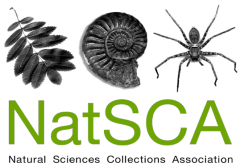Post Doctoral Research Assistant (PDRA) - Hydroscape: Gene flow and genetic diversity in fresh waters
Role description:
The Natural History Museum is one of the world’s leading museums, internationally recognised for its dual role as a centre of excellence in scientific research and as a leader in the presentation of natural history through exhibitions, public programmes, publications and the web.
This is one of two projects (supervised by Beth Okamura and David Bass) based at the Natural History Museum that form fundamental components of a larger NERC-funded multidisciplinary research programme (Hydroscape) investigating how connectivity and multiple stressors interact to influence biodiversity and ecosystem function in freshwaters. Although connectivity is recognised to be a multi-faceted and quintessential property of aquatic ecosystems there is a critical lack of knowledge on how biodiversity and ecosystem function respond to variation in stress factors that may be influenced by different levels of connectivity. This is in part due to a long tradition of focusing on individual stressors and sites. The overall research programme is designed to gain essential insights for future management of freshwaters by working across a hierarchy of spatial and temporal scales and covering a range of freshwater habitat types in different landscapes to address these issues. A central proposition of the project is that increasing connectivity entails a basic tension between desirable (promoting resilience) and undesirable (increasing the spread and impact of stressors) outcomes.
Gene flow is an essential component of the metapopulation dynamics of freshwater organisms, demonstrates how populations are linked (via connectivity) within and among sites across the landscape, and introduces novelty promoting resilience to environmental change by facilitating adaptive potential (enhancing genetic diversity). This project focuses on how gene flow and genetic diversity are impacted by multiple stressors and connectivity by investigating taxa within the same group that vary in dispersal capacity (using freshwater bryozoans as a model system). Microsatellites have already been developed and optimised for the bryozoan taxa. The project will be linked with a second project at the NHM on disease distributions and connectivity as bryozoans are primary host of one of the fish diseases investigated.
Candidates for the project should have a PhD in population genetics, phylogeography or related field of molecular evolution/ecology and will thus have experience in molecular biology, population genetic and statistical analyses and a demonstrated organisational capacity for creating, maintaining and analysing large datasets. The work will entail extensive fieldwork to collect freshwater bryozoans from multiple sites in three regions of the UK (Norfolk Broads, Lake District, Greater Glasgow), examination of material for parasitic infections (myxozoans) by PCR and stereomicroscopy, microsatellite genotyping, and population genetic analyses. There would be opportunity for further development of modelling skills via interactions with modellers to elucidate how gene flow and diversity are influenced by measures of connectivity (e.g. hydrology, bird densities, human activity, etc.) and stressors (e.g. disease, pollution, eutrophication, heavy metals).
Salary: £32,500 per annum plus benefits
Contract: 30 months fixed term contract
Hours: 41 hours per week including lunch breaks
Closing date: 9am on Monday 8 February 2016
Role competences:
BEFORE beginning your application - Please read the section below about the ‘Online Application Process’ carefully.
If you wish to be considered for this role you will need to address each of the following competences in the ‘other information’ section of your online application:
1. A PhD involving molecular taxonomy or related field of molecular evolution/ecology
2. Familiarity with molecular biology (wetlab)
3. Experience with bioinformatics relevant to analysis of next-generation sequencing data
4. Good understanding of DNA-based taxonomy and barcoding
5. Statistical analysis
6. Experience in working effectively with others
7. Production of scientific publications
8. Ability to train and supervise complementary research conducted by MSc or PhD students
9. Ability to contribute to development of a research proposal
